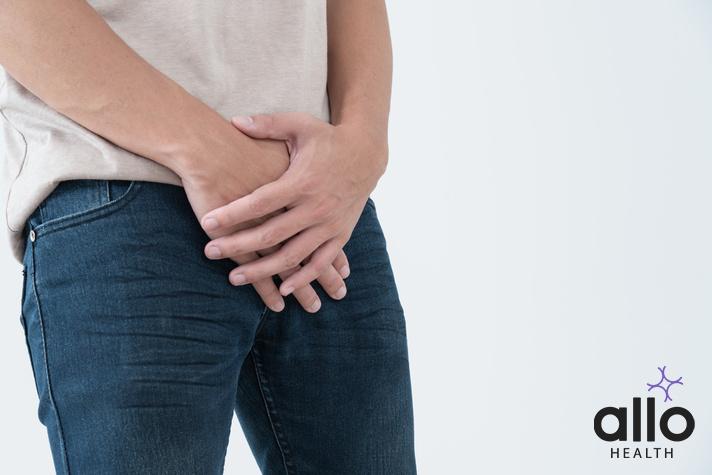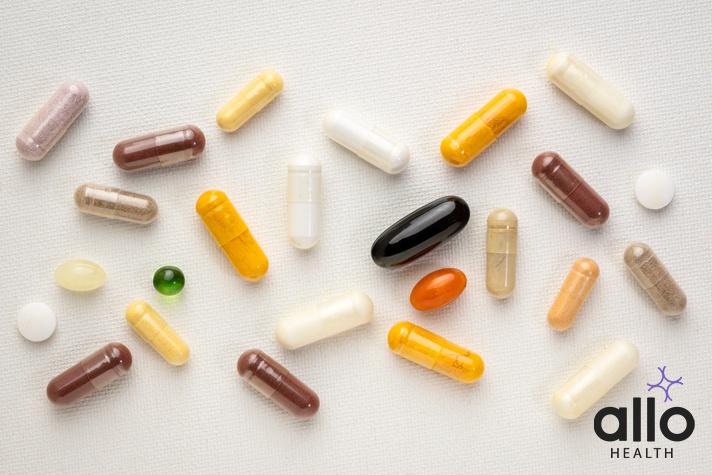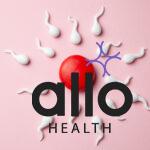Link Between ADHD and Premature Ejaculation

Allo Health is dedicated to personalized well-being, offering support and trusted information tailored to individual health goals. The platform emphasizes human-generated content, led by a distinguished medical team of experts, including physicians and sexual health specialists. Their commitment to credibility involves rigorous fact-checking, authoritative research, and continuous updates to ensure accurate, up-to-date information. Allo Health's unique approach goes beyond conventional platforms, providing expert-led insights and a continuous commitment to excellence, with user feedback playing a crucial role in shaping the platform's authoritative voice.

Dr.Sushma.V completed MBBS degree from BGS GIMS,bangalore
Why This Was Upated?
Our experts continually monitor the health and wellness space, and we update our articles when new information became available.
Updated on 06 June, 2024
- Article was updated as part of our commitment to diversity, equity, and inclusion.

"The following blog article provides general information and insights on various topics. However, it is important to note that the information presented is not intended as professional advice in any specific field or area. The content of this blog is for general educational and informational purposes only.
Book consultation
The content should not be interpreted as endorsement, recommendation, or guarantee of any product, service, or information mentioned. Readers are solely responsible for the decisions and actions they take based on the information provided in this blog. It is essential to exercise individual judgment, critical thinking, and personal responsibility when applying or implementing any information or suggestions discussed in the blog."
Attention-deficit/hyperactivity disorder (ADHD) is a neurodevelopmental disorder that affects millions of adults worldwide. While it’s well-known for its impact on attention, focus and impulsivity, recent research has unveiled a surprising connection between ADHD and another concern that affects many men: premature ejaculation (PE). In this article, we will explore the link between ADHD and premature ejaculation, shedding light on the factors contributing to this correlation and potential treatment options.
What is ADHD?
ADHD, or attention-deficit/hyperactivity disorder, is a developmental disorder characterized by persistent patterns of inattention, hyperactivity and impulsivity that significantly interfere with daily functioning.
- Core Symptoms: ADHD is defined by three primary symptom categories: inattention, hyperactivity and impulsivity.
- Inattention: Individuals with ADHD often struggle with maintaining focus on tasks, being easily distracted and making careless mistakes.
- Hyperactivity: Hyperactive individuals exhibit excessive restlessness, fidgeting and difficulty sitting still, especially in situations where it’s expected.
- Impulsivity: Impulsive behavior in adolescents manifest as hasty decision-making, interrupting others and difficulty waiting their turn.
- Diagnosis: Diagnosis typically occurs in childhood, but ADHD can persist into adulthood. It’s diagnosed based on specific criteria outlined in the Diagnostic and Statistical Manual of Mental Disorders (DSM-5).
- Impact: ADHD can affect various aspects of life, including academic performance, work, relationships and self-esteem.
- Treatment: Treatment options include behavioral therapy, medication (stimulants or non-stimulants) and lifestyle modifications.
- Coexisting Conditions: ADHD often coexists with other conditions like anxiety, depression or learning disorders in adults.
- Management: Effective management strategies can significantly improve the quality of life for individuals with ADHD, helping them navigate the challenges associated with this condition.
- Individual Variation: ADHD symptoms and their severity can vary widely among individuals, making it essential to tailor treatment approaches to each person’s specific needs.
How Does ADHD Affect Sexual Health?
ADHD, or attention-deficit/hyperactivity disorder, can significantly impact an individual’s sexual health in various ways:
- Impulsive Behaviors: One of the hallmark traits of ADHD is impulsivity. This impulsive nature can extend to sexual behaviors, leading to difficulties in controlling ejaculation, contributing to premature ejaculation (PE). PE affects sexual satisfaction and can strain relationships, impacting overall quality of life and sexual satisfaction.
- Emotional Dysregulation: Emotional dysregulation is common in ADHD, making it challenging to manage emotions during sexual activity. This emotional instability can interfere with sexual satisfaction and exacerbate concerns like PE or erectile dysfunction (ED).
- Risk-Taking Behavior: ADHD is associated with risk-taking behavior, which may extend to sexual risk-taking. Engaging in risky sexual behaviors can increase the chances of encountering sexual disorders, including PE or ED and may hinder overall sexual satisfaction.
- Association with Pornography Use: Some individuals with ADHD may turn to pornography as a coping mechanism or outlet for their sexual needs. This association with pornography use can impact sexual activity and may contribute to concerns like PE or difficulties in sexual performance.
- Treatment Efficacy: Pharmacological treatments used to manage ADHD, such as stimulants or non-stimulants, can have sexual side effects like reduced sex drive or impotence. This can further complicate an individual’s sexual health and satisfaction.
Note: ADHD affects sexual health through impulsive behaviors, emotional dysregulation, and risk-taking tendencies. These factors can lead to concerns like premature ejaculation, erectile dysfunction, and reduced sexual satisfaction. While medication is often a primary treatment for ADHD, it’s essential for healthcare providers to consider its potential impact on sexual health and explore holistic approaches, behavioral interventions, and alternative treatments to address both ADHD symptoms and sexual dysfunction effectively.
Prevalence of PE in Those with ADHD

The prevalence of premature ejaculation (PE) in individuals with attention-deficit/hyperactivity disorder (ADHD) is a topic of growing interest, shedding light on the potential interplay between these two conditions. While precise figures can vary depending on the study and population, several key points emerge regarding the co-occurrence of ADHD and PE:
- Varied Prevalence Rates: Research indicates that individuals with ADHD may have an elevated risk of experiencing premature ejaculation compared to those without ADHD. However, the exact prevalence rates vary among studies, ranging from approximately 30% to 50% of individuals with ADHD reporting concerns related to PE.
- Comorbidity Factors: The connection between ADHD and PE is complex and influenced by various factors. Emotional dysregulation, impulsive behaviors and risk-taking tendencies associated with ADHD may contribute to the higher prevalence of PE in this population.
- Quality of Life Impact: The presence of PE in adults with ADHD can significantly impact their quality of life, affecting their sexual satisfaction and overall well-being. This underscores the importance of addressing both conditions comprehensively.
- Treatment Implications: Recognizing the co-occurrence of ADHD and PE is essential for healthcare providers. Tailored treatment plans that address the symptoms of both conditions, whether through pharmacological treatment, holistic approaches, or behavioral interventions, can lead to improved outcomes for individuals seeking relief.
A study focused on examining the prevalence and symptoms of ADHD in patients with lifelong premature ejaculation. It involved 48 patients with lifelong premature ejaculation and 40 controls. The study found that 20 patients (41.66%) with lifelong premature ejaculation were diagnosed with ADHD.
Another study included 38 patients with premature ejaculation and 27 controls. It found that ADHD was significantly more frequent in patients with premature ejaculation (42.1%) compared to controls (3.7%).
Note: The prevalence of premature ejaculation in those with adult attention deficit disorder varies but tends to be higher than in individuals without ADHD. The relation between these two conditions underscores the need for comprehensive assessment and treatment strategies that consider the unique challenges faced by adults with attention-deficit/hyperactivity disorder, ultimately aiming to enhance their sexual satisfaction and overall quality of life.
Sexual Side Effects of ADHD Medication in Men

ADHD medication, particularly stimulants, can have various sexual side effects in men. These side effects can impact both physical and psychological aspects of sexual health. Here are some of the notable sexual side effects:
- Reduced Sex Drive (Libido): Men may experience a decline in their sexual desire. This can be due to the direct effects of the medication on the brain’s neurotransmitters, such as dopamine, which play a significant role in sexual arousal.
- Erectile Dysfunction: As mentioned earlier, difficulty in achieving or maintaining an erection is a common concern. This can be due to changes in blood flow or psychological factors influenced by the medication.
- Delayed Ejaculation or Orgasm: Some men might find it more challenging to reach orgasm, or they may experience a significant delay. This can be due to the medication’s effects on the nervous system and neurotransmitter levels.
- Premature Ejaculation: Contrary to delayed ejaculation, some men might experience premature ejaculation as a side effect of ADHD medication.
- Changes in Sexual Behaviors: Impulsive behavior, a common symptom of ADHD, can be exacerbated by the medication in some cases, potentially leading to impulsive or risky sexual behaviors.
- Psychological Effects: ADHD medications can affect mental health conditions, potentially leading to changes in mood, anxiety, or stress levels, all of which can impact sexual performance and desire.
- Impact on Hormonal Balance: Certain medications may influence the hormonal balance in the body, including hormones related to sexual function like testosterone.
Note: It’s important to note that these side effects can vary significantly from person to person. Not everyone will experience these effects, and for some, the benefits of the medication in managing ADHD symptoms may outweigh the sexual side effects. If sexual side effects become a concern, it is crucial to consult a healthcare professional to discuss possible adjustments to the treatment plan, which may include changing the type of medication, altering the dosage or incorporating other strategies to manage these side effects.
Impact of Untreated ADHD on Relationships and Sexual Satisfaction
Untreated ADHD can have a significant impact on relationships and sexual satisfaction:
- Communication Struggles: Individuals with untreated ADHD may find it challenging to maintain effective communication in relationships, leading to misunderstandings, frustration and emotional distance.
- Impulsivity: Impulsivity can manifest in impulsive reactions or decisions, which can create conflicts and disrupt the harmony of a relationship.
- Inattention: Untreated ADHD can result in forgetfulness and inattentiveness, making it difficult to remember important dates or engage fully in conversations, which can erode the foundation of a relationship.
- Emotional Dysregulation: Emotional outbursts and mood swings are common in untreated ADHD, causing emotional turmoil for both partners.
- Sexual Satisfaction: ADHD’s impulsivity and inattention can spill over into the bedroom, impacting sexual satisfaction. Difficulty maintaining focus and controlling impulses can lead to sexual challenges, including premature ejaculation or difficulties with intimacy.
- Relationship Strain: Over time, these concerns can lead to relationship strain, decreased intimacy, and reduced sexual satisfaction, potentially jeopardizing the overall health and longevity of the partnership. It’s crucial to recognize these challenges and seek appropriate treatment to improve relationship dynamics and sexual satisfaction for individuals with ADHD and their partners.
Treatment Options for PE in ADHD Men
Premature ejaculation (PE) in individuals with attention-deficit/hyperactivity disorder (ADHD) can be challenging, but several treatment options are available to address this concern and improve overall sexual satisfaction and quality of life.
- Pharmacological Treatment: Stimulants commonly prescribed for ADHD, like methylphenidate or amphetamines, may inadvertently exacerbate PE due to their potential to increase arousal. Healthcare providers should carefully monitor medication dosages and consider non-stimulant alternatives to strike a balance between managing ADHD symptoms and minimizing sexual side effects.
- Behavioral Interventions: Behavioral therapy, such as cognitive-behavioral therapy (CBT), can help individuals with ADHD develop better impulse control, emotional regulation, and sexual satisfaction. Techniques like the stop-start method or the squeeze technique can be integrated into therapy sessions to manage PE effectively.
- Holistic Approaches: A holistic approach that focuses on a balanced life, including regular exercise, stress reduction, and a healthy diet, can indirectly contribute to better control over premature ejaculation. Maintaining a healthy sex drive and overall mental well-being is essential.
- Acupuncture with Drug Treatment: Some individuals with ADHD explore acupuncture as a complementary therapy alongside conventional drug treatment. While research is ongoing, acupuncture may help manage impulsive behaviors and emotional dysregulation, indirectly benefiting sexual function.
- Treatment Efficacy and Monitoring: It’s crucial for individuals with ADHD and PE to work closely with their healthcare provider to monitor treatment efficacy and make necessary adjustments. Finding the right balance between managing ADHD symptoms and addressing PE is essential for overall well-being.
Note: Treating premature ejaculation in individuals with ADHD requires consideration of both conditions. Balancing the management of ADHD with strategies to address impulsivity, emotional regulation, and sexual satisfaction is vital. Consulting a healthcare provider knowledgeable about the complex interplay between ADHD and sexual dysfunction can help individuals find the most appropriate and effective treatment plan for their unique needs.
Conclusion
The link between ADHD and premature ejaculation is a complex concern that impacts the sexual satisfaction and quality of life of those affected. While pharmacological treatments offer potential relief, holistic approaches and behavioral interventions can also play a crucial role in managing both ADHD symptoms and premature ejaculation. Individuals with ADHD should consult with a healthcare provider to explore the most appropriate treatment options tailored to their needs, ultimately enhancing their overall well-being and sexual satisfaction.
Most Asked Questions
-
What is the connection between ADHD and premature ejaculation?
The link between ADHD and premature ejaculation is that some people with ADHD might struggle with controlling their ejaculation during sex due to impulsive behaviors and emotional difficulties.
-
How can premature ejaculation affect my life and relationships?
Premature ejaculation can lead to less satisfaction in your sex life and create concerns in your relationships, causing frustration and disappointment for both you and your partner.
-
Are there any treatments available for managing both ADHD and premature ejaculation?
Yes, there are treatments. Medications used for ADHD may help indirectly with premature ejaculation. Additionally, holistic approaches, counseling, and behavioral therapy can be beneficial in improving your overall sexual experience.
-
What should I do if I suspect I have both ADHD and premature ejaculation?
If you think you have both ADHD and premature ejaculation, it’s important to consult with a healthcare provider. They can help you explore suitable treatment options, tailored to your needs, to enhance your overall well-being and sexual satisfaction.






































